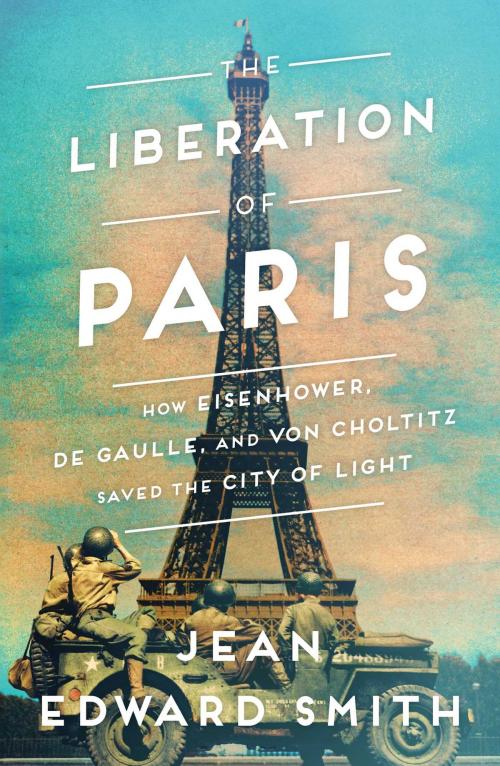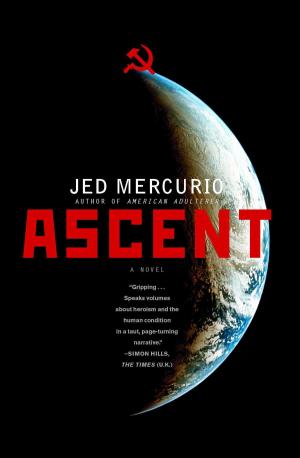The Liberation of Paris
How Eisenhower, de Gaulle, and von Choltitz Saved the City of Light
Nonfiction, History, Military, United States, Americas, 20th Century, World War II| Author: | Jean Edward Smith | ISBN: | 9781501164941 |
| Publisher: | Simon & Schuster | Publication: | July 23, 2019 |
| Imprint: | Simon & Schuster | Language: | English |
| Author: | Jean Edward Smith |
| ISBN: | 9781501164941 |
| Publisher: | Simon & Schuster |
| Publication: | July 23, 2019 |
| Imprint: | Simon & Schuster |
| Language: | English |
Prize-winning and bestselling historian Jean Edward Smith tells t****he dramatic story of the liberation of Paris during World War II—a triumph that was achieved through the remarkable efforts of Americans, French, and Germans, all racing to save the city from destruction.
Following their breakout from Normandy in late June 1944, the Allies swept across northern France in pursuit of the German army. The Allies intended to bypass Paris and cross the Rhine into Germany, ending the war before winter set in. But as they advanced, local forces in Paris began their own liberation, defying the occupying German troops.
Charles de Gaulle, the leading figure of the Free French government, urged General Dwight Eisenhower to divert forces to liberate Paris. Eisenhower’s most senior staff recommended otherwise, but Ike wanted to help position de Gaulle to lead France after the war. And both men were concerned about partisan conflict in Paris that could leave the communists in control of the city and the national government, perhaps even causing a bloodbath like the Paris Commune. Neither man knew that the German commandant, Dietrich von Choltitz, convinced that the war was lost, dissembled and schemed to surrender the city to the Allies intact, defying Hitler’s orders to leave it a burning ruin.
In The Liberation of Paris, Jean Edward Smith puts this dramatic event in context, showing how the decision to free the city came at a heavy price: it slowed the Allied momentum and allowed the Germans to regroup. After the war German generals argued that Eisenhower’s decision to enter Paris prolonged the war for another six months. Was Paris worth this price? Smith answers this question in his superb, dramatic history of one of the great events of World War II—published seventy-five years after the liberation.
Prize-winning and bestselling historian Jean Edward Smith tells t****he dramatic story of the liberation of Paris during World War II—a triumph that was achieved through the remarkable efforts of Americans, French, and Germans, all racing to save the city from destruction.
Following their breakout from Normandy in late June 1944, the Allies swept across northern France in pursuit of the German army. The Allies intended to bypass Paris and cross the Rhine into Germany, ending the war before winter set in. But as they advanced, local forces in Paris began their own liberation, defying the occupying German troops.
Charles de Gaulle, the leading figure of the Free French government, urged General Dwight Eisenhower to divert forces to liberate Paris. Eisenhower’s most senior staff recommended otherwise, but Ike wanted to help position de Gaulle to lead France after the war. And both men were concerned about partisan conflict in Paris that could leave the communists in control of the city and the national government, perhaps even causing a bloodbath like the Paris Commune. Neither man knew that the German commandant, Dietrich von Choltitz, convinced that the war was lost, dissembled and schemed to surrender the city to the Allies intact, defying Hitler’s orders to leave it a burning ruin.
In The Liberation of Paris, Jean Edward Smith puts this dramatic event in context, showing how the decision to free the city came at a heavy price: it slowed the Allied momentum and allowed the Germans to regroup. After the war German generals argued that Eisenhower’s decision to enter Paris prolonged the war for another six months. Was Paris worth this price? Smith answers this question in his superb, dramatic history of one of the great events of World War II—published seventy-five years after the liberation.















